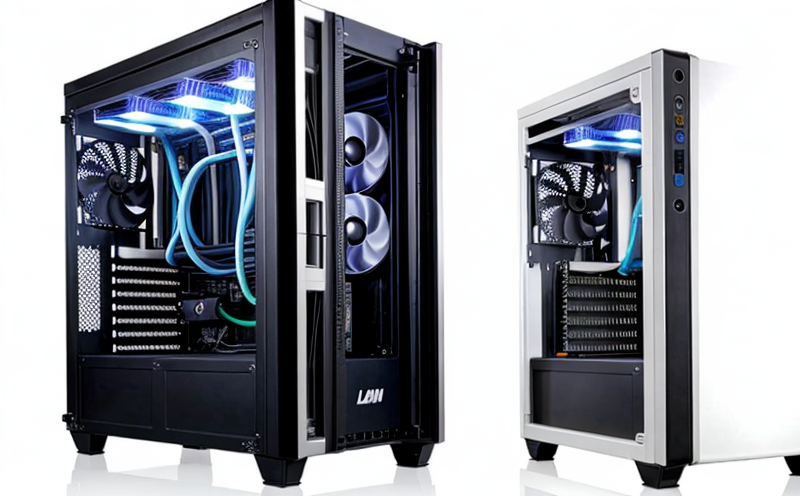EN 14825 Seasonal Efficiency Evaluation
The European standard EN 14825, "Seasonal Energy Efficiency Ratio (SEER) of Air Conditioning and Heat Pump Systems," provides a method for the seasonal energy efficiency evaluation of air conditioning units. This standardized procedure is crucial for manufacturers to ensure that their HVAC equipment meets or exceeds regulatory requirements and consumer expectations regarding energy efficiency.
The testing process under EN 14825 involves simulating real-world operating conditions, which are typically more complex than static test conditions like those used in ISO 11292. This approach ensures a more accurate representation of the equipment's performance over its operational lifetime. The standard specifies that tests should be conducted at various outdoor air temperature and humidity levels to assess how the system performs under typical seasonal conditions.
During the evaluation, the equipment is subjected to a series of defined test cycles designed to mimic real-world usage patterns. These include start-up conditions, normal operation, and shutdown sequences. The performance metrics measured during these tests are critical for determining the SEER rating, which is a key indicator of the system's energy efficiency over its lifetime.
For HVAC systems, understanding seasonal efficiency is essential because it reflects how much electricity a unit will consume throughout an entire season, not just at peak load conditions. This comprehensive evaluation helps in identifying potential inefficiencies and areas for improvement. By adhering to EN 14825, manufacturers can ensure that their products are not only compliant with regulatory requirements but also offer superior performance to meet market demands.
The standard's rigorous testing procedures provide a reliable basis for comparing different models within the same category and across various brands. This enables consumers to make informed decisions based on verified data rather than marketing claims alone. Additionally, compliance with EN 14825 can enhance a company’s reputation by demonstrating its commitment to quality and sustainability.
The process involves several key steps:
- Preparation of the equipment for testing
- Setting up test conditions according to the standard
- Data collection during the specified operating cycles
- Analysis of collected data to determine SEER ratings
- Reporting results in accordance with EN 14825 requirements
The results from these tests are crucial for both manufacturers and end-users. For manufacturers, it provides valuable insights into how their products perform under realistic conditions, allowing them to optimize designs and improve overall efficiency. End-users benefit directly through lower operational costs and reduced environmental impact.
In real-world applications, the seasonal efficiency evaluation plays a vital role in ensuring that HVAC systems operate efficiently throughout various climatic zones. This is particularly important given the global trend towards more stringent energy regulations aimed at reducing carbon footprints and promoting sustainable practices.
Eurolab Advantages
At Eurolab, we are committed to delivering high-quality testing services that meet the highest standards of accuracy and reliability. Our expertise in HVAC equipment testing ensures that our clients receive thorough evaluations using methods compliant with EN 14825. Here’s why you should choose us:
- State-of-the-Art Facilities: We utilize advanced facilities equipped with cutting-edge technology to perform comprehensive seasonal efficiency evaluations.
- Experienced Technical Staff: Our team comprises highly skilled engineers and technicians who are experts in HVAC systems and comply strictly with international standards.
- Comprehensive Reporting: We provide detailed reports that not only include the SEER ratings but also other relevant performance metrics, offering a holistic view of the equipment's capabilities.
- Customized Solutions: Recognizing that every client has unique needs, we offer tailored testing packages to meet specific requirements.
- Rapid Turnaround Times
Customer Impact and Satisfaction
Better Compliance: Ensuring that your HVAC equipment meets or exceeds EN 14825 requirements helps avoid legal penalties and maintains a positive reputation.
Competitive Edge: Demonstrating compliance with this standard can give you an advantage in the market, attracting more customers and potentially increasing sales.
Improved Product Quality: Regular testing helps identify areas for improvement, leading to higher product quality and customer satisfaction.
Lower Operational Costs: Efficient equipment reduces energy consumption, resulting in lower operational costs over the long term.
Enhanced Environmental Impact: By improving efficiency, you contribute positively to environmental sustainability efforts.
Better Data for Marketing: Accurate and reliable performance data can be used effectively in marketing materials, enhancing brand credibility.
Customer satisfaction is paramount at Eurolab. Our commitment to excellence ensures that every test is conducted with precision and care, leading to accurate results and satisfied clients.
Environmental and Sustainability Contributions
At Eurolab, we recognize the importance of sustainability in our testing processes. By ensuring that HVAC equipment meets EN 14825 standards, we contribute to reducing energy consumption and greenhouse gas emissions across various sectors. Here’s how:
Energy Efficiency: Ensuring that equipment operates at maximum efficiency minimizes the amount of electricity consumed, thereby reducing carbon footprints.
Regulatory Compliance: Adhering to international standards like EN 14825 helps meet regulatory requirements, promoting a cleaner environment and sustainable practices.
Sustainable Product Design: The insights gained from seasonal efficiency evaluations can guide manufacturers in designing more sustainable products.
Customer Education: Providing accurate performance data encourages customers to make environmentally conscious choices when selecting HVAC systems.
We strive to incorporate sustainability into every aspect of our operations, ensuring that our services not only meet current needs but also contribute positively to future environmental goals.





